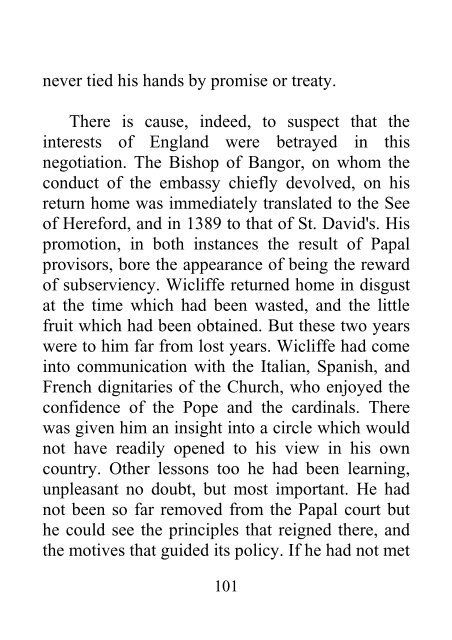Wicliffe and His Times - James Aitken Wylie
- No tags were found...
You also want an ePaper? Increase the reach of your titles
YUMPU automatically turns print PDFs into web optimized ePapers that Google loves.
never tied his h<strong>and</strong>s by promise or treaty.<br />
There is cause, indeed, to suspect that the<br />
interests of Engl<strong>and</strong> were betrayed in this<br />
negotiation. The Bishop of Bangor, on whom the<br />
conduct of the embassy chiefly devolved, on his<br />
return home was immediately translated to the See<br />
of Hereford, <strong>and</strong> in 1389 to that of St. David's. <strong>His</strong><br />
promotion, in both instances the result of Papal<br />
provisors, bore the appearance of being the reward<br />
of subserviency. <strong>Wicliffe</strong> returned home in disgust<br />
at the time which had been wasted, <strong>and</strong> the little<br />
fruit which had been obtained. But these two years<br />
were to him far from lost years. <strong>Wicliffe</strong> had come<br />
into communication with the Italian, Spanish, <strong>and</strong><br />
French dignitaries of the Church, who enjoyed the<br />
confidence of the Pope <strong>and</strong> the cardinals. There<br />
was given him an insight into a circle which would<br />
not have readily opened to his view in his own<br />
country. Other lessons too he had been learning,<br />
unpleasant no doubt, but most important. He had<br />
not been so far removed from the Papal court but<br />
he could see the principles that reigned there, <strong>and</strong><br />
the motives that guided its policy. If he had not met<br />
101

















